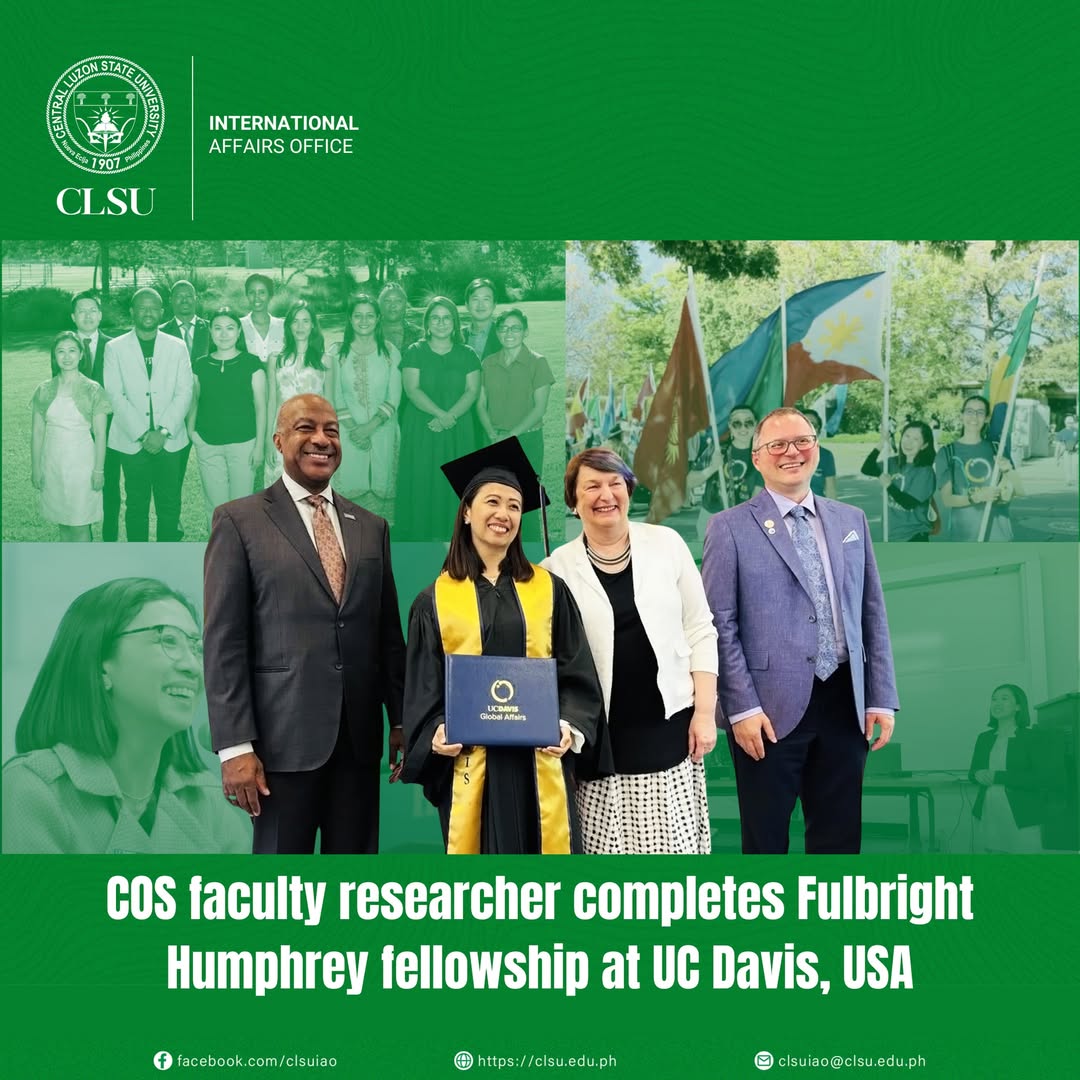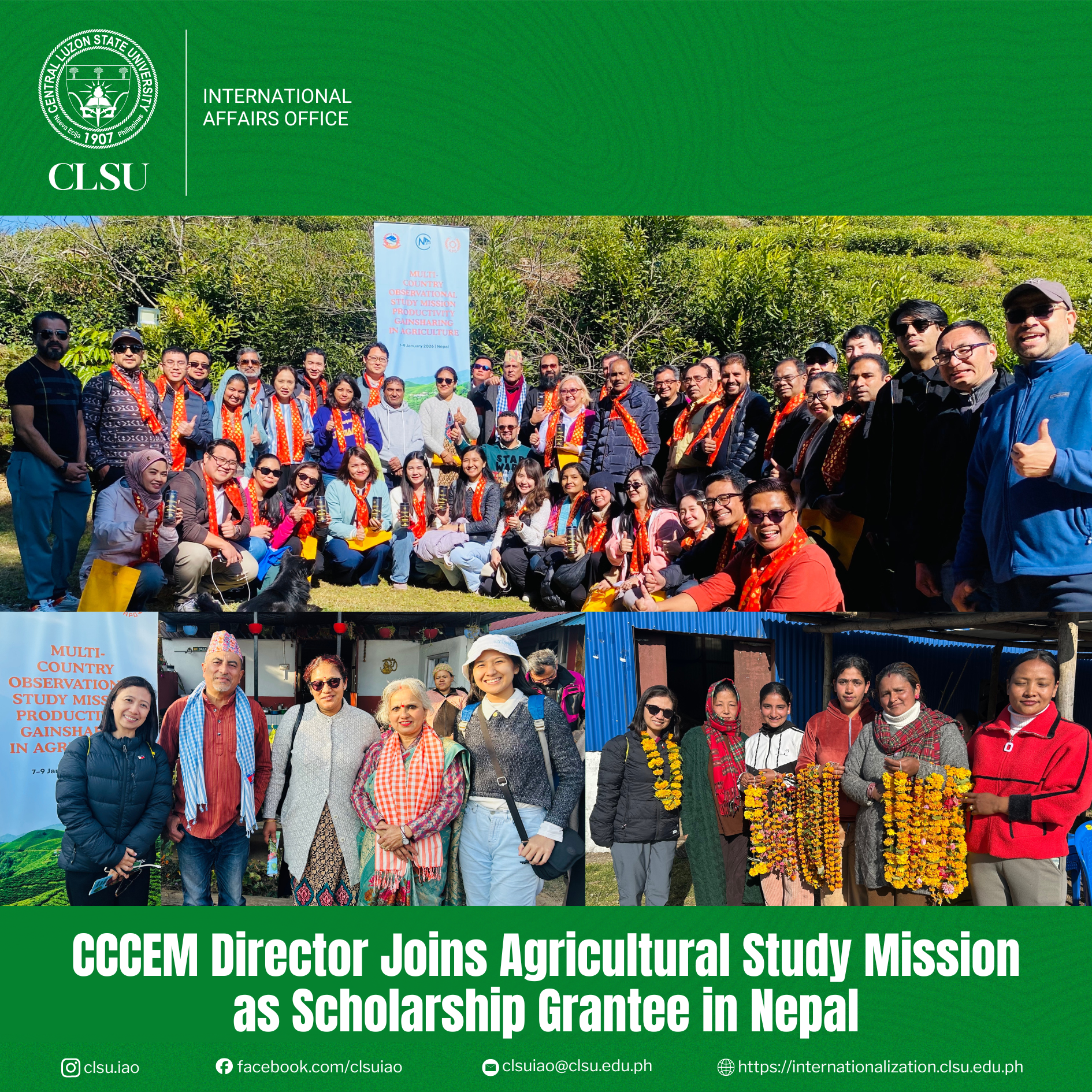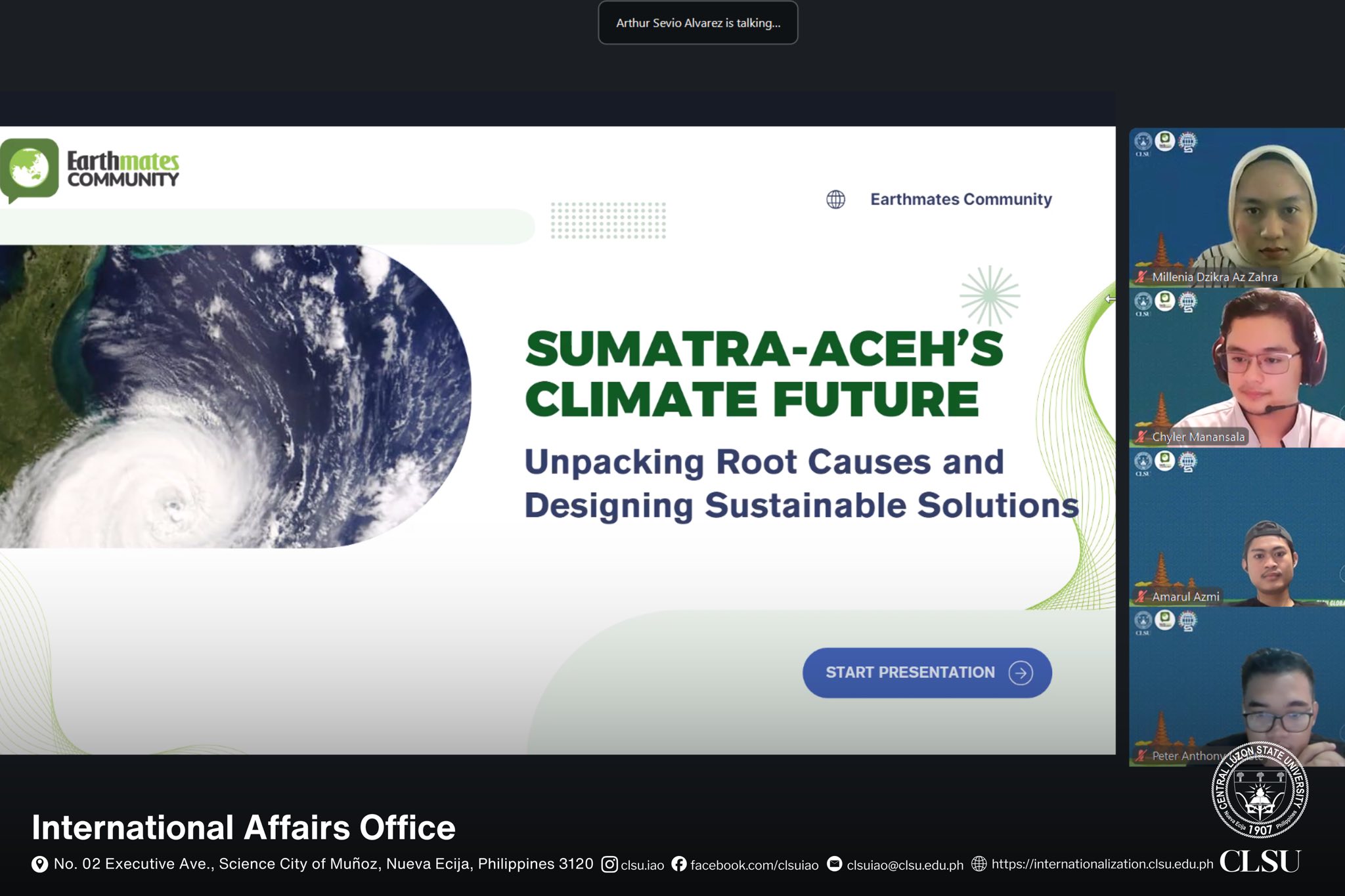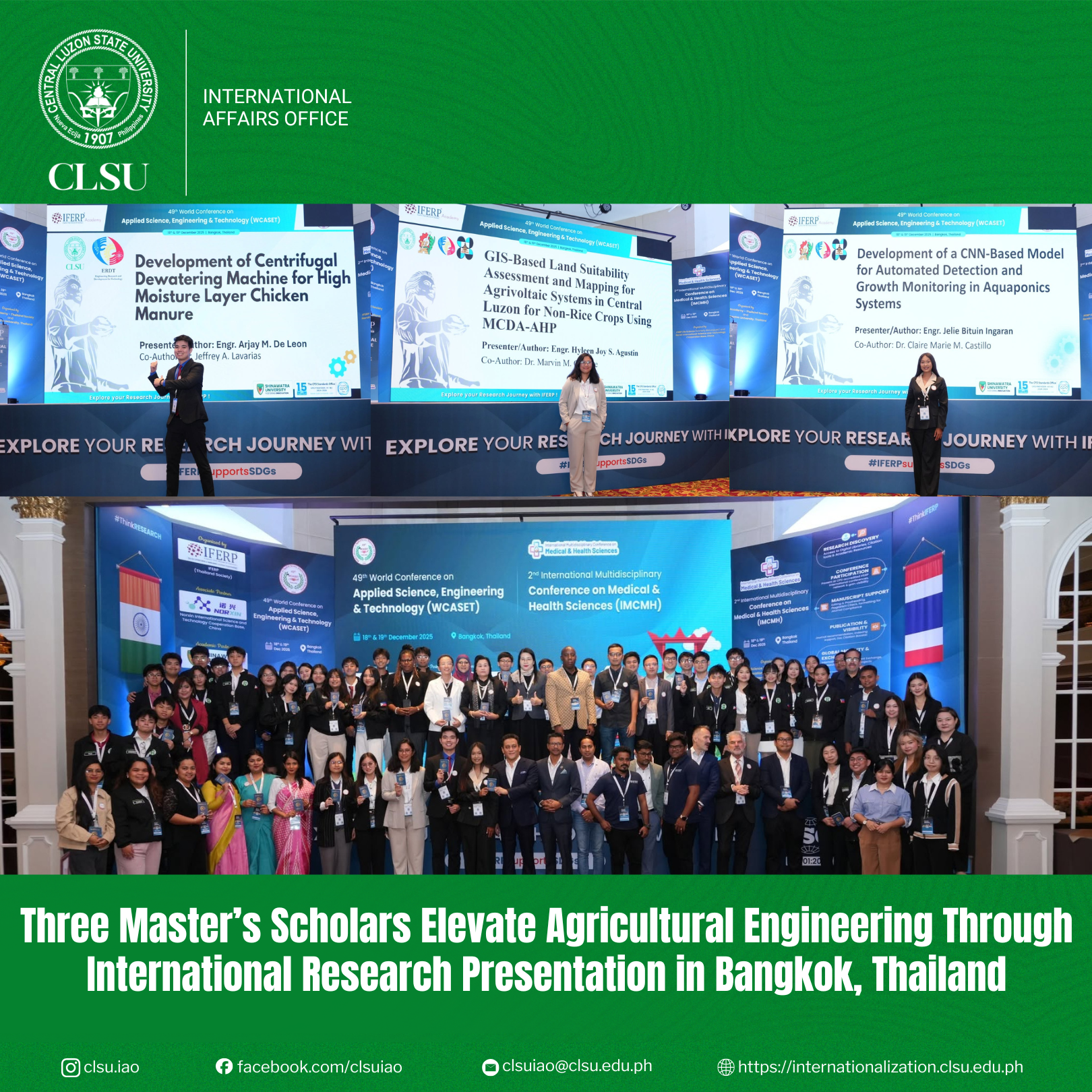
COS Faculty Researcher completes Fulbright Humphrey fellowship at UC Davis, USA
Dr. Gella Patria L. Abella, a faculty researcher from the College of Science (COS) and the Institute for Climate Change and Environmental Management (ICCEM) at Central Luzon State University (CLSU), has completed the 10-month postdoctoral fellowship on Natural Resources, Environmental Policy and Climate Change of the Fulbright Hubert H. Humphrey Fellowship Program at the University of California (UC), Davis, USA.
As the sole Filipino selected among twelve global mid-career professionals, Dr. Abella brought to the international stage the urgent environmental and agricultural challenges faced by the Philippines—particularly those affecting Filipino farmers amid climate change.
In an interview with the International Affairs Office (IAO), Dr. Abella shared her most meaningful experiences, such as engaging with Humphrey Fellows from different countries with varying fields of expertise, cultures, and leadership styles, and relearning computer software such as Geographic Information System (GIS) and R, which can be used as tools in analyzing environmental data.
Her engagement with mentors on Water Evaluation and Planning (WEAP) led to a collaborative effort involving the Stockholm Environment Institute (SEI)–Davis, UC Davis, Academics Without Borders (AWB)–USA, and CLSU. She described this connection as “the seed for collaboration.” Through the AWB–USA–funded project Capacity Building on Water Resource Planning Using the WEAP Computer Model, Dr. Samuel Sandoval, a professor at UC Davis, will train CLSU faculty, students, and PhilRice personnel on the integration of WEAP into the Agricultural and Biosystems Engineering curriculum.
Dr. Abella also plans to use WEAP in CLSU and Philippine Rice Research Institute’s (PhilRice) ongoing project on agricultural land use allocation, which she believes would “accurately and optimally allocate agricultural land based on land suitability, farmer’s income, and disaster risk.” She added that the framework could help CLSU assist the Department of Agriculture, the Department of Environment and Natural Resources, and their attached agencies in strategic land and water resource planning.
Her fellowship also showcased her work on the early detection of fall armyworm (FAW) infestations in onions and corn using drone technology. Through a StoryMap presentation titled Fallen Armyworms, she emphasized that FAW outbreaks are “heavily influenced by the warming climate.” The work stemmed from a Manila Economic and Cultural Office – Taipei Economic and Cultural Office (MECO-TECO) Joint Research Program (JRP) with National Taiwan University under the project Monitoring and Management of Major Pests and Diseases of Corn and Onion through Robotics and Drone Technology (PEST D-Tech).
Inspired by the sustainability efforts of UC Davis—known as a bike-friendly campus—Dr. Abella also expressed interest in introducing bike lanes within CLSU. She shared her hope to “encourage CLSU constituents to use the bicycle as a form of transportation,” which would help reduce the university’s greenhouse gas emissions and contribute to SDG 13: Climate Action.
To fellow CLSU faculty, students, and aspiring researchers, she emphasized that the Philippines is a “first-hand recipient of climate impacts,” and that the agricultural sector is “the most impacted by the climate crisis.” She urged the CLSU community to be “part of the solution” and to remain open to “research collaboration and technology adoption developed by other countries.”
Recent News


